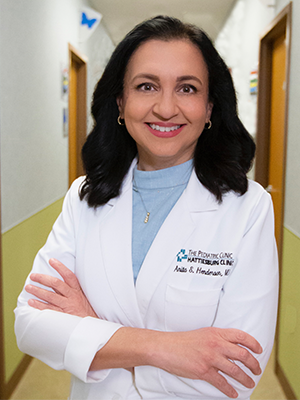Experts weigh in on U.S. baby formula shortage

Prepare, but don’t panic. That’s the advice of experts at the University of Mississippi Medical Center and its pediatric arm, Children’s of Mississippi, concerning shortages of baby formula nationally.
Supply chain issues and a recall are reasons why formula is harder to find.
Earlier this year, the U.S. Food and Drug Association warned families about a formula recall after Abbott Nutrition recalled powdered formula manufactured in Sturgis, Michigan, including Similac, Alimentum, and EleCare. The recall was sparked by an investigation for cronobacter sakazakii contamination. This can be serious or fatal for infants.

“At this time of immense shortage and recalls, we encourage mothers who are medically able to breastfeed to do so, and for those who are unable to, please follow your pediatrician’s recommended alternatives,” said Dr. Mobolaji Famuyide, chief of UMMC’s Division of Newborn Medicine and professor of pediatrics. “Above all, the safety of our children is primal.”

Dr. Anita Henderson, president of the Mississippi Chapter of the American Academy of Pediatrics and a pediatrician at the Hattiesburg Clinic, said the AAP has been in touch with the Mississippi Department of Health and its WIC (Women, Infants and Children) program about the issue.
“We encourage parents to contact their local WIC office if they are having trouble finding formula,” Henderson said.
The American Academy of Pediatrics recommends that parents buy only a 10-day to two-week supply of formula to avoid hoarding. If favorite stores and supermarkets are short on baby formula, look in other stores and pharmacies.
Store-brand formulas are generally a safe substitute, she said. “If you are not sure, please reach out to your pediatrician.”
Shiloh Lancaster, a dietitian in the neonatal intensive care unit inside the Kathy and Joe Sanderson Tower at Children’s of Mississippi, agrees.
“Parents should discuss changing formulas or appropriate alternatives to formulas with their pediatrician or pediatric specialist, especially if an infant is on a specialized formula,” she said.
Lancaster also suggests trying to purchase formula directly from manufacturers. “The major manufacturers have established service line and websites to assist in finding formula in your area.”
The AAP warns parents against watering down formula as this can lead to slowed growth, nutritional and electrolyte imbalances and other serious health conditions. In extreme situations, electrolyte imbalances could lead to seizures and death.
Babies younger than a year should not consume cow’s milk, toddler formulas, or milk substitutes such as almond milk or oat milk.
Homemade formula recipes are dangerous, experts say, so don’t try making formula at home.
Parents shouldn’t buy imported baby formula online, either, as these may have not been approved by the FDA.
UMMC and Children’s of Mississippi are “currently adequately stocked for most formulas for our patients, Lancaster said. “We have certainly been impacted by the formula recall, and our stock of hypoallergenic and specialty formulas is limited.”
Because of supply limitations, formula samples are not being given to providers or parents to reserve stock for hospital inpatients.
“The dietitians and staff here at UMMC are keeping an eye on the supply issue and continue to provide support to help parents and providers navigate the shortage,” Lancaster said.


